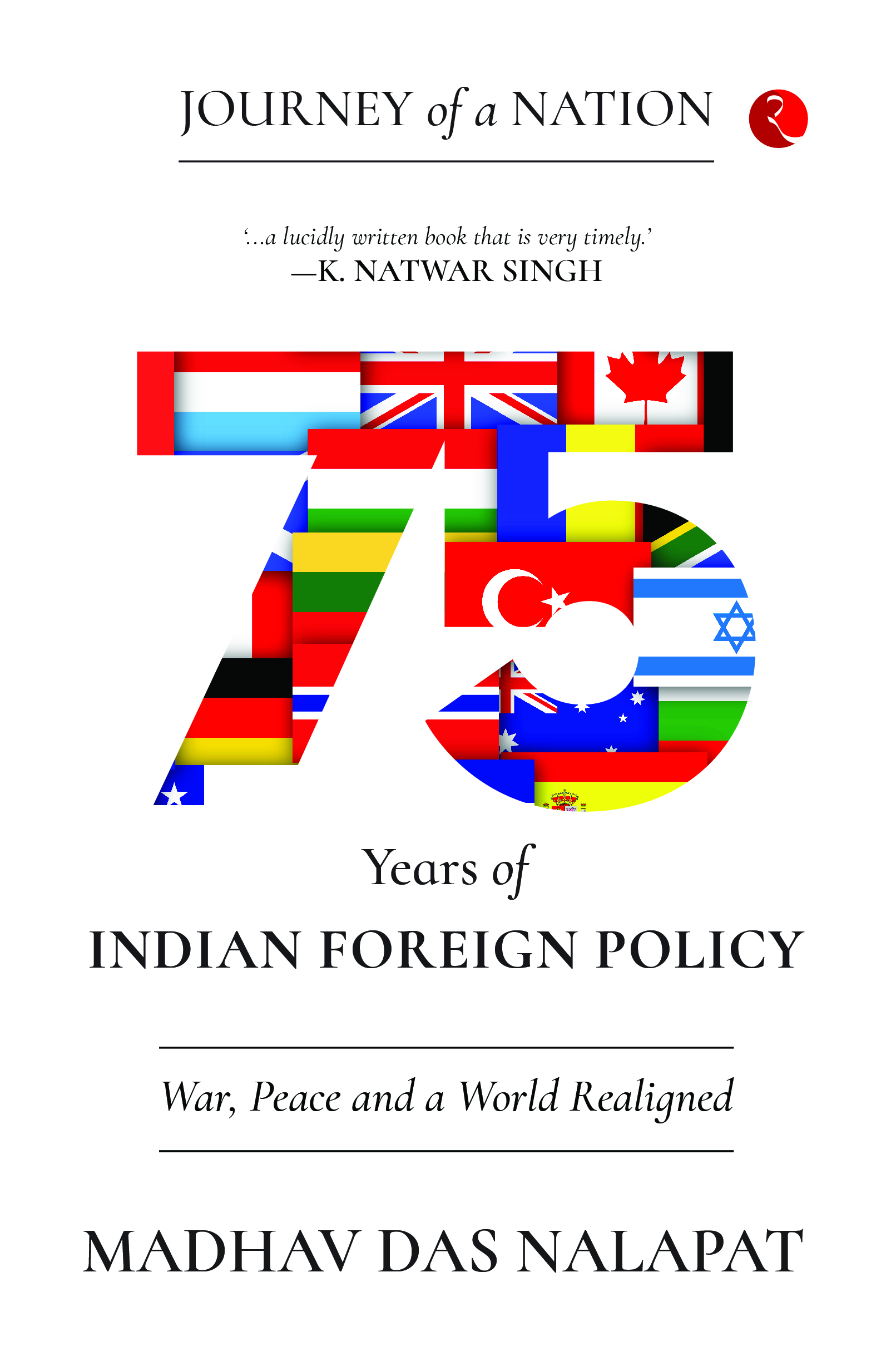M.D. Nalapat’s book, 75 Years of Indian Foreign Policy: War, Peace and a World Realigned, is riveting, erudite and provocative.
I am not for the first time crossing the red line. I am doing so in a good cause. I am writing about the book the Editorial Director has written. It came out early this week. I am doing so without the knowledge of the author.
I do not take seriously the dictum Vasudhaiva Kutumbakam (the world is a family). The world has never been a family. It never will.
M.D. Nalapat’s book, 75 Years of Indian Foreign Policy: War, Peace and a World Realigned, is riveting, erudite and provocative. He does not shy away from candour and unequivocalness.
India, according to Nalapat, has been a soft power, which is on the road of becoming a hard power. The eight chapters critically address the complexities of foreign policy and diplomacy of the major powers: the United States of America (US), the People’s Republic of China (PRC), the European Union (EU), India and Russia. Three decades ago, the United Nations (UN) would have found a prominent place in the book. Today, it is no longer taken seriously due to incidences like the time when President George Bush chose to attack Iraq, bypassing the United Nations Security Council’s (UNSC) decision.
Prime Minister Jawaharlal Nehru was a great man but not a great foreign minister. Nalapat is rightly unsparing of Nehru’s indefensible mishandling of our policy regarding Kashmir and China. Nehru should not have taken the Kashmir question to the UNSC, certainly not under Chapter VI of the UN Charter, which deals with disputes among member states. Nehru should have opted for Chapter VII, which is about aggression by one member state against another. In the UNSC, the Kashmir question became the India-Pakistan question.
Broadly speaking, Nehru misjudged the intention of Chairman Mao-Zedong, who wanted to “teach India a lesson”. China’s 1962 invasion hastened Nehru’s death. To this day, the Kashmir issue and the Sino-Indian border dispute remain unresolved.
Nalapat does not only ask questions; he provides answers. This is a lucidly written book that is very timely. Nalapat’s sound judgement and Weltanschauung stand out. The range and value of this book cannot be exaggerated.
***
The Lok Sabha and Rajya Sabha have not functioned to debate, discuss or deliberate on national issues, which need to be taken up in Parliament without delay.
Parliament, in the years, does not meet as often as it should. Certainly not less than four to five months as its counterparts in the US, UK, France etc., do.
The situation in the states is even worse. In 2021, the Kerala Assembly met for 61 days, Odisha 43, Karnataka 40, Tamil Nadu 34, Bihar 32, Himachal Pradesh 31, Rajasthan 26, Jharkhand 26, Assam 26, Gujarat 24. Of the 28 state Assemblies and one union territory, 17 met for less than 20 days. Of them, five- Andhra Pradesh, Nagaland, Sikkim, Tripura and Delhi met for less than 10 days. The figures for Uttar Pradesh, Manipur and Punjab were 17, 16 and 11.
Any impartial voter will agree that this reflects poorly on our Parliament and state Assemblies.
Committees do meet between sessions, but these do so infrequently. Several members do not turn up.
***
Climate change is here to stay. In my youth I never heard or read of fires in Europe and America getting out of control, destroying wheat fields, fruit trees, thousands of homes, schools, hospitals. Today even glaciers are melting, snow in Greenland and the Arctic Ocean is losing mountains of snow. Mount Kilimanjaro in Kenya is no longer snow covered.
Technology has so far come up with no remedy for climate control. It is feared that by 2050 the Arctic Ocean will be devoid of snow. Its waters could swallow up a vast number of coastal cities—New York, Cape Town, Karachi, Mumbai, Colombo, Chennai, Singapore, Shanghai and a vast numbers of Islands. Floods would be more frequent, destroying bridges, drowning thousands of people in many parts of the globe
***
Two young pilots were killed when the MIG-21 jet plane they were flying crashed early in the week near Jaisalmer in Rajasthan. The MIG-21s are out of date. When will they be replaced?
Wing Commander M. Rana was 35 and Lt Advitiya was 26. My condolences to their bereaved families.

